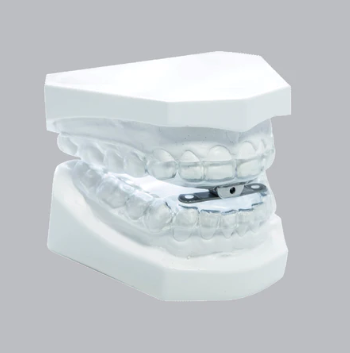
4.6* BASED ON 800 REVIEWS

4.6* BASED ON 800 REVIEWS

In this issue, we would like to discuss one of the most common sleep-related disorders.
What is Snoring?
Snoring is more than just a disruptive noise at night. Simple snoring, as it is known, is caused by the partial closure of the upper airway during sleep. The resultant reduction in airflow is what causes the snoring sound, as the soft tissues at the back of the throat vibrate.
Certain factors can increase the likelihood of snoring, such as: weight, age, gender, alcohol, smoking and sleeping position. Middle-aged males are three times more likely to suffer from snoring than their female counterpart.
Ranging from 50-100 decibels, the equivalent of a pneumatic drill, snoring can lead to relationship issues, exhaustion, increased stress and depression. In some cases, though not all, snoring can also be indicative of a condition called Obstructive Sleep Apnoea – a potentially life-threatening condition if left untreated.
What is Obstructive Sleep Apnoea (OSA)?
Obstructive Sleep Apnoea (OSA) is caused by the repeated collapsing of the airway during sleep, resulting in complete (apnoea) or partial (hypopnoea) obstruction of the airflow for 10 seconds or more. To a bed partner, these episodes can be identified as the sufferer stopping breathing during the night, often waking themselves up with a snort or gasp.
Left untreated, these regular disruptions to sleep can lead to serious consequences for the sufferer – and their bed partner – including: increased blood pressure, heightened risk of cardiovascular disease, strokes, diabetes and excessive daytime sleepiness.
How Do I Know If I Have Obstructive Sleep Apnoea?
As mentioned above, there are certain characteristics of a sufferer having apnoeic episodes, such as snoring and/or gasping, and cessations in breathing. If this sounds familiar, or you are also suffering from any of the side effects listed above, we recommend visiting a medical professional for advice.
Dr Nancy Yousef is trained in dental sleep medicine, will give you a short questionnaire to assess your risk of suffering from OSA when you begin treatment for snoring. Depending on the results generated from this, you may be prescribed an appliance called a Mandibular Advancement Splint (MAS), or be referred on for a sleep study.
What treatments for Snoring are available?
There are a number of solutions available for both Snoring and OSA. Mandibular Advancement Splints (MAS) are commonly used for the treatment of both.
MAS devices work by holding the lower jaw in a forward position, to prevent it from dropping back in sleep and obstructing the airway.
There are a number of splints available on the market, including Sleepwell – our most popular MAS appliance.
Now made in the UK (Sheffield) using a unique manufacturing process, Sleepwell has been shown to be the most clinically successful in clinical studies

If you have any questions or concerns about snoring and would like to speak to Dr Nancy Yousef, please call the practice on 0207 610 1110
We hope you enjoyed the read
The Team at NHS Dentist
Fields with (*) are required.
Please contact us via this website or email without disclosing confidential information.